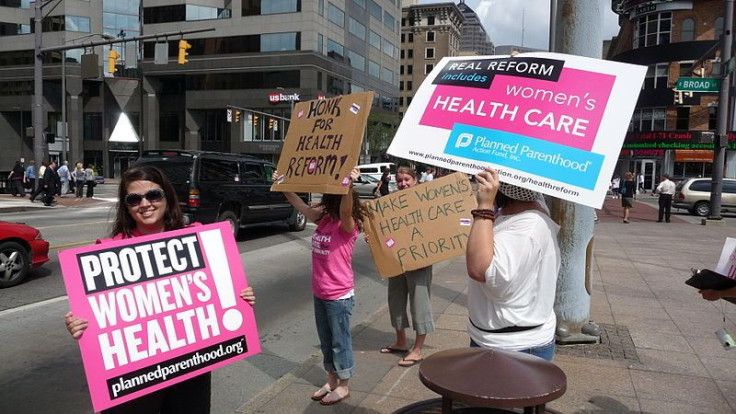Victory For Planned Parenthood: Supreme Court Declines Abortion Case; Non-Profit Will Continue To Receive Funding

The U.S. Supreme Court declined to hear a case Tuesday that would have blocked government funding to health care organizations that perform abortions, annihilating Indiana's attempt to discontinue Medicaid funding to Planned Parenthood.
Planned Parenthood is the country's largest abortion provider. But outside of abortions, the non-profit healthcare provider also administers important medical services, including STD testing and cancer screening to low-income individuals and families. An Indiana law sought to cut off government funding to any group that provides abortions, even if that funding would go toward other medical testing and procedures.
As it stands now, no state or federal funds can go towards funding abortions. In 1973, the landmark decision in Roe v. Wade legalized abortion in the United States and allowed for the procedure to be covered under Medicaid. That coverage, however, was revoked in 1977 under the Hyde Amendment, which banned Medicaid coverage of abortion. So, although abortion is legal in the United States, the government will only fund the procedure in cases of rape, incest, or a health emergency.
Indiana wanted to take that prohibition a step further, removing all government funding to health care providers who provide abortions. The measure was shot down by the U.S. Court of Appeals, which ruled that the ban on Medicaid funds was not related to Planned Parenthood's ability to perform medical services.
Indiana argued that taxpayers are being forced to fund abortions when Planned Parenthood and providers like it receive Medicaid funding. But Planned Parenthood insisted that the abortions that it provides are privately funded. The health care organization made sure to echo the sentiment that denying its funding would be denying a myriad of other very important services to individuals and families who need it most, an argument that ultimately won over the court.
Planned Parenthood has 28 locations in Indiana and serves about 9,000 people in the state annually.
The Supreme Court's decision to deny certiorari is a victory for Planned Parenthood. In the last few years, lawmakers in quite a few states have tried to take steps to cut off funding to Planned Parenthood.
"Politicians in all 50 states should take note: Blocking Planned Parenthood from funding to provide preventive health care is both unlawful, and deeply unpopular," said Cecile Richards, president of the Planned Parenthood Action Fund.



























